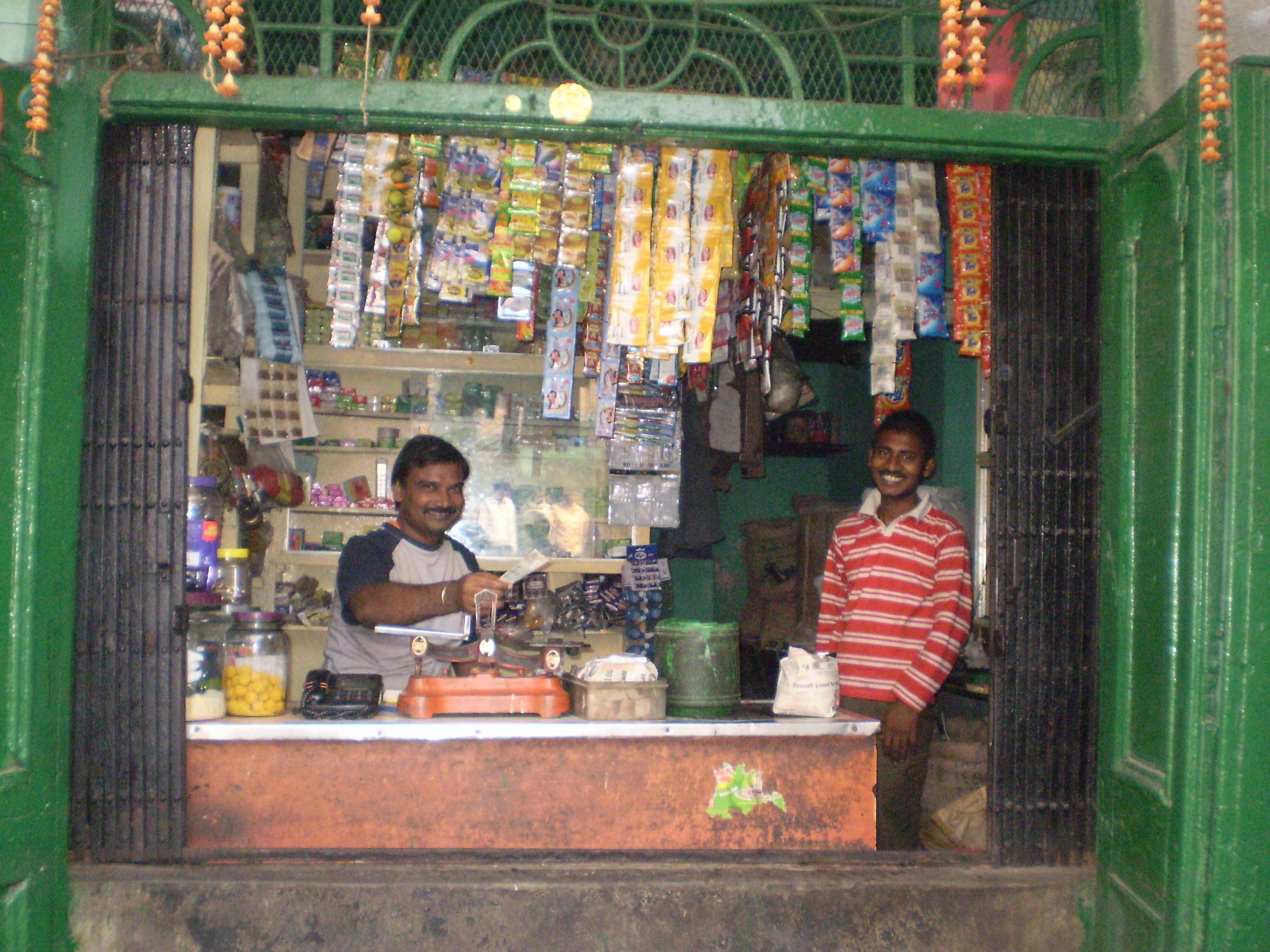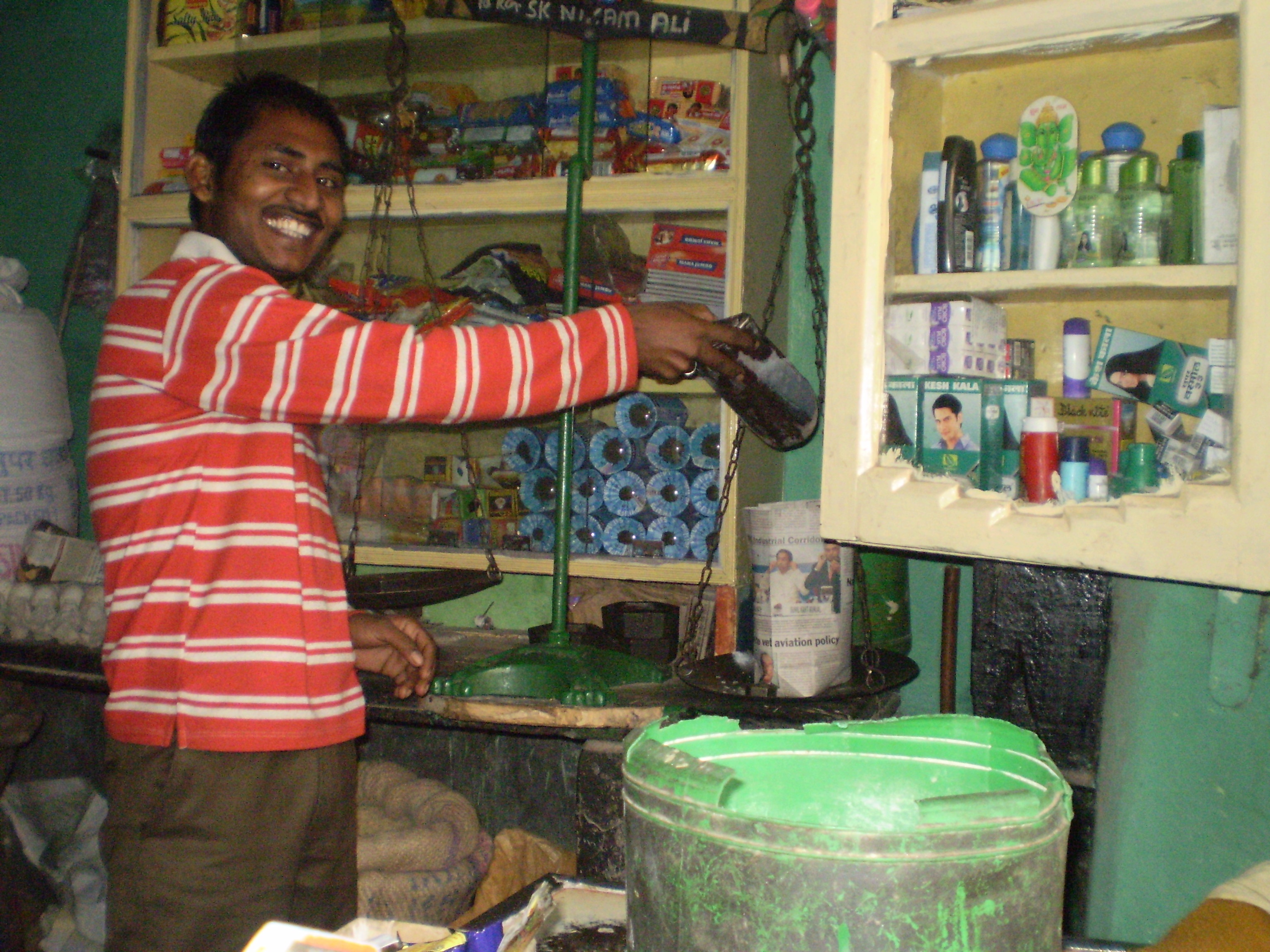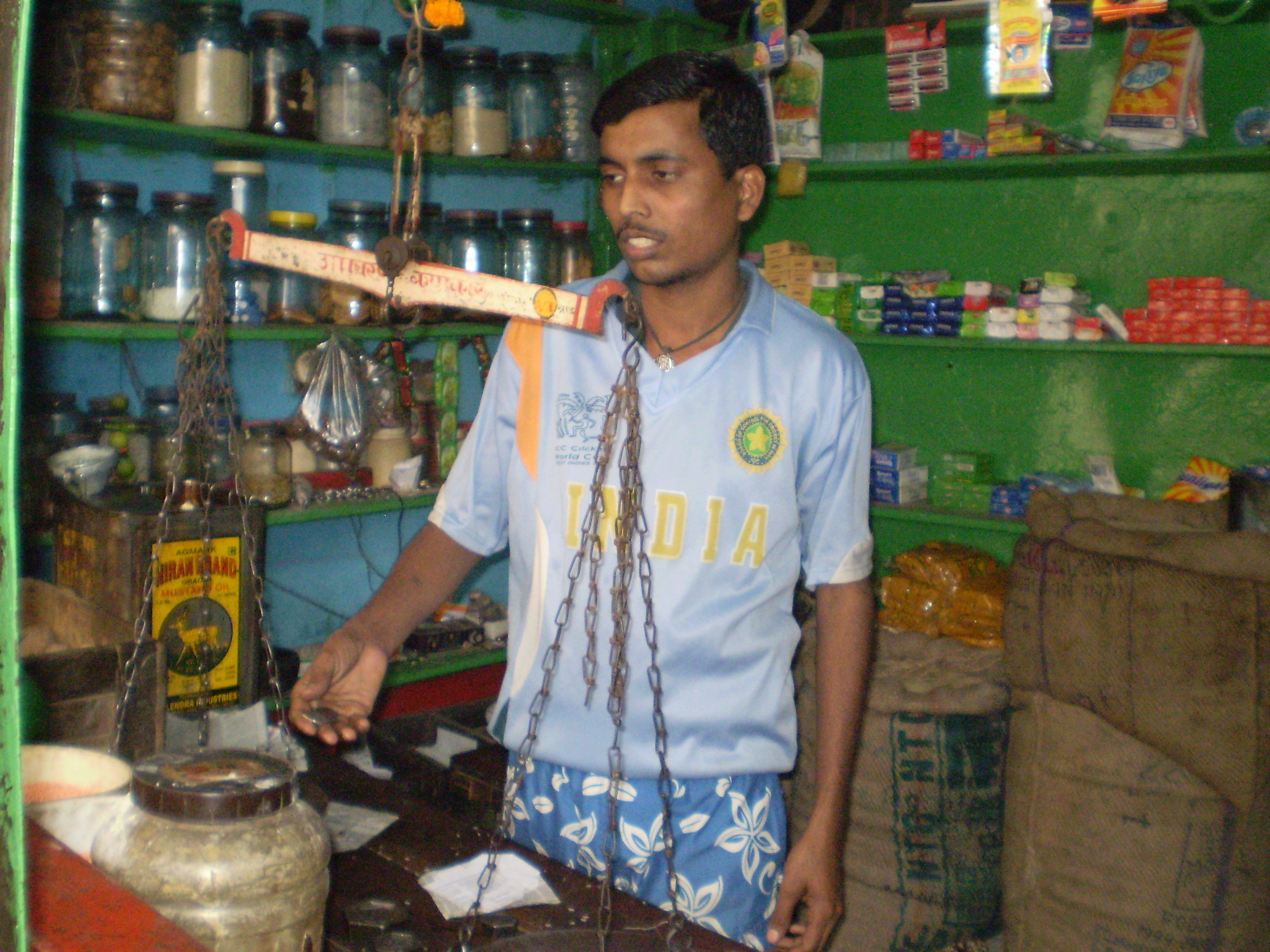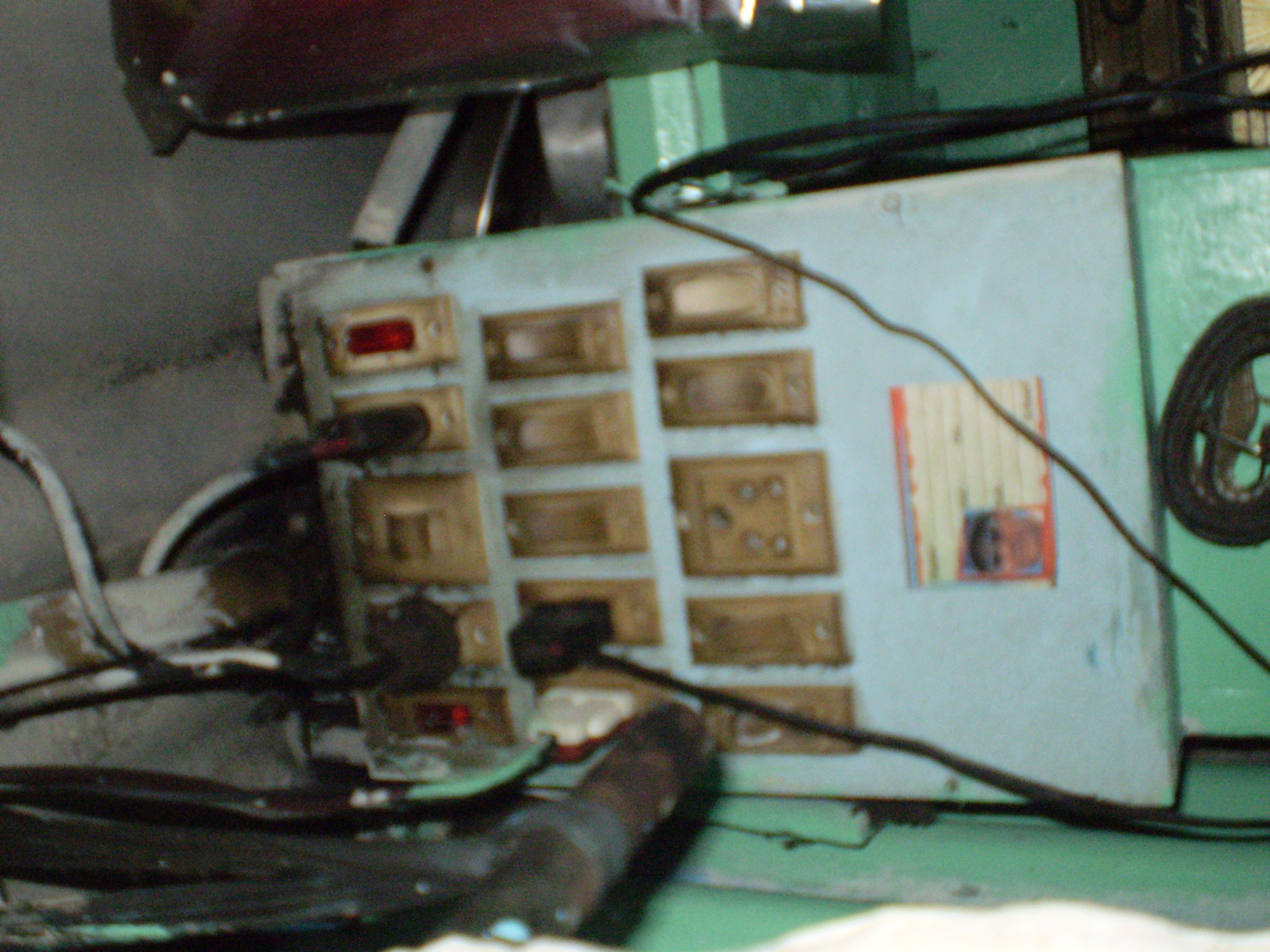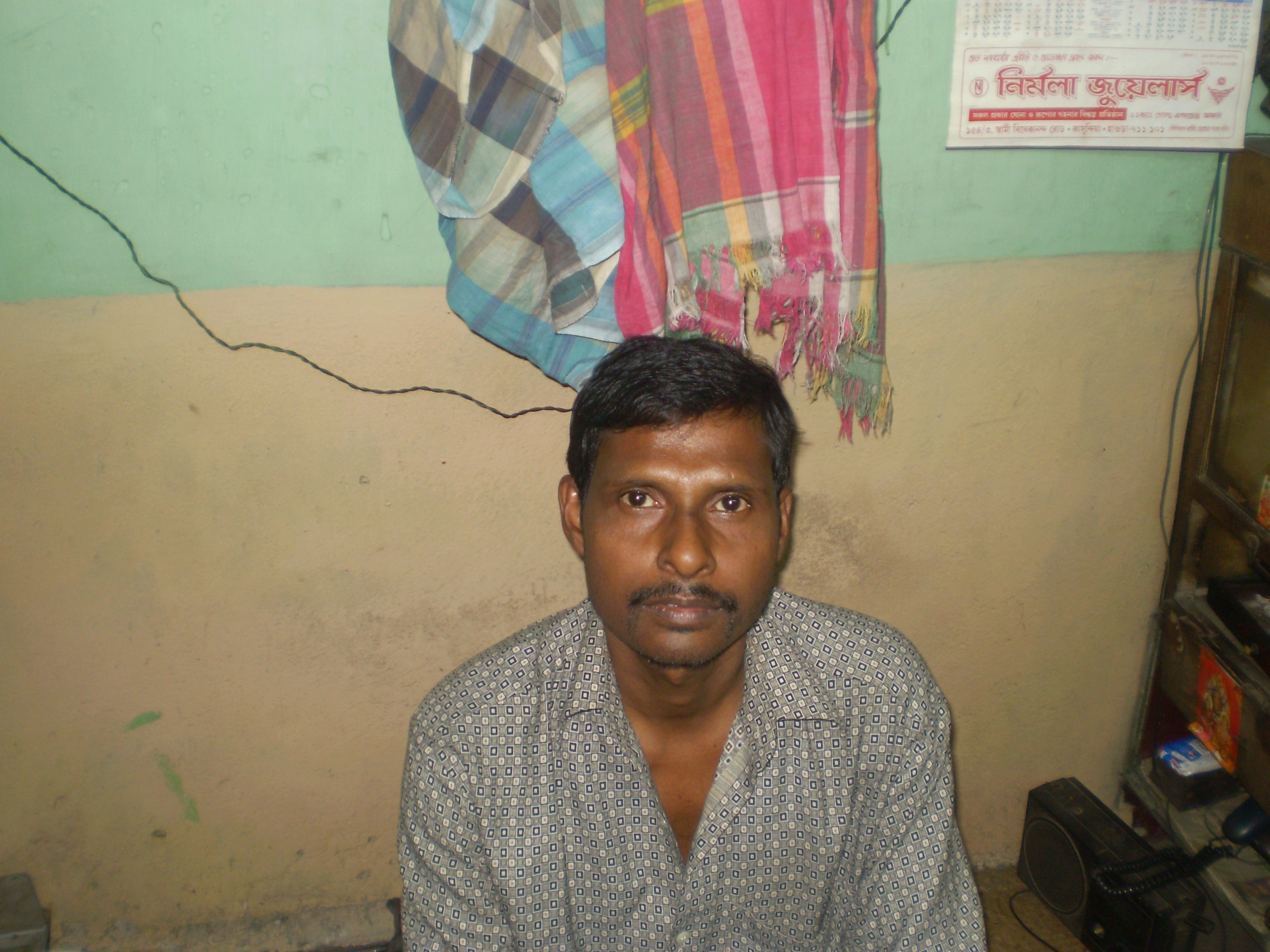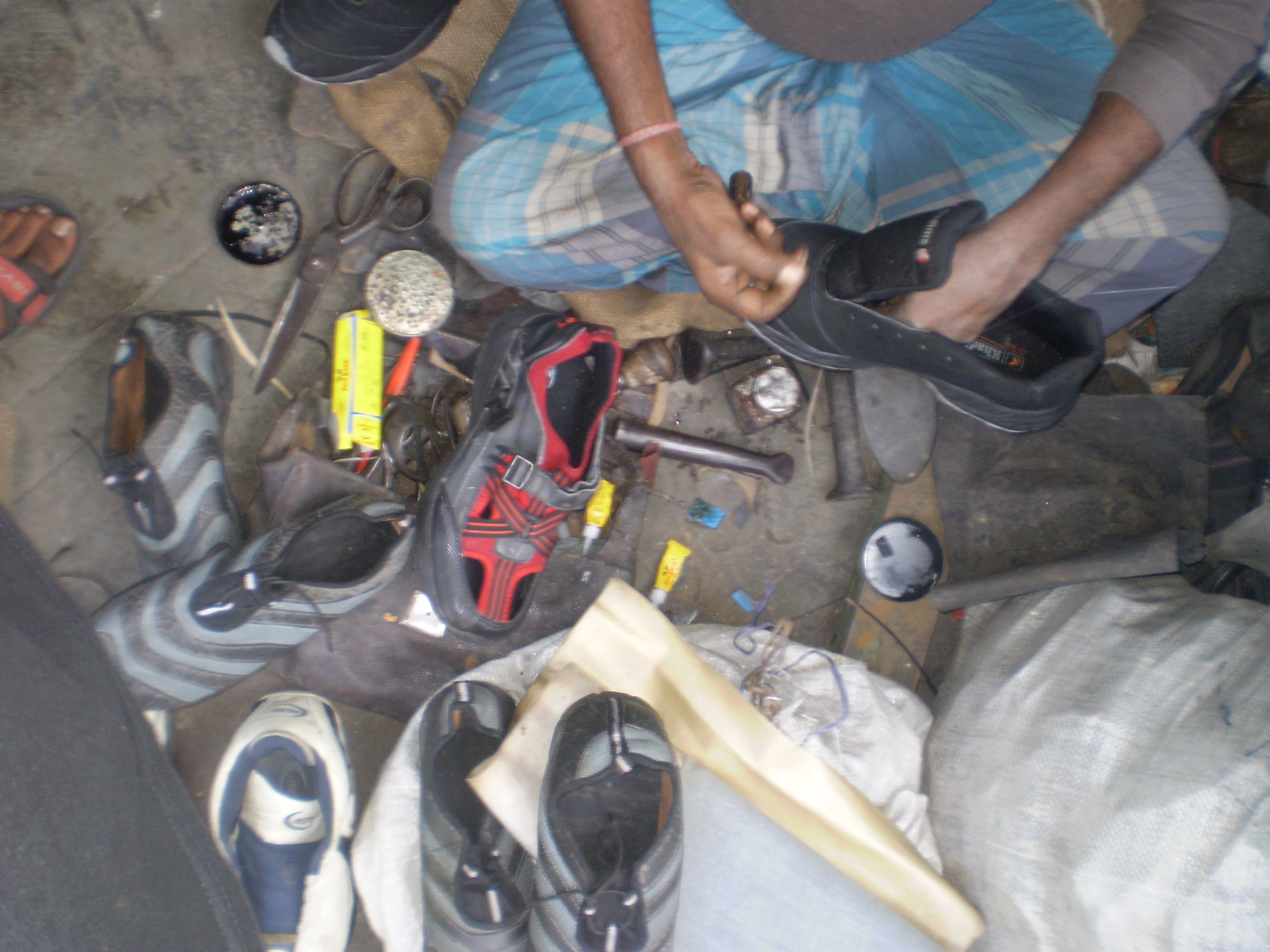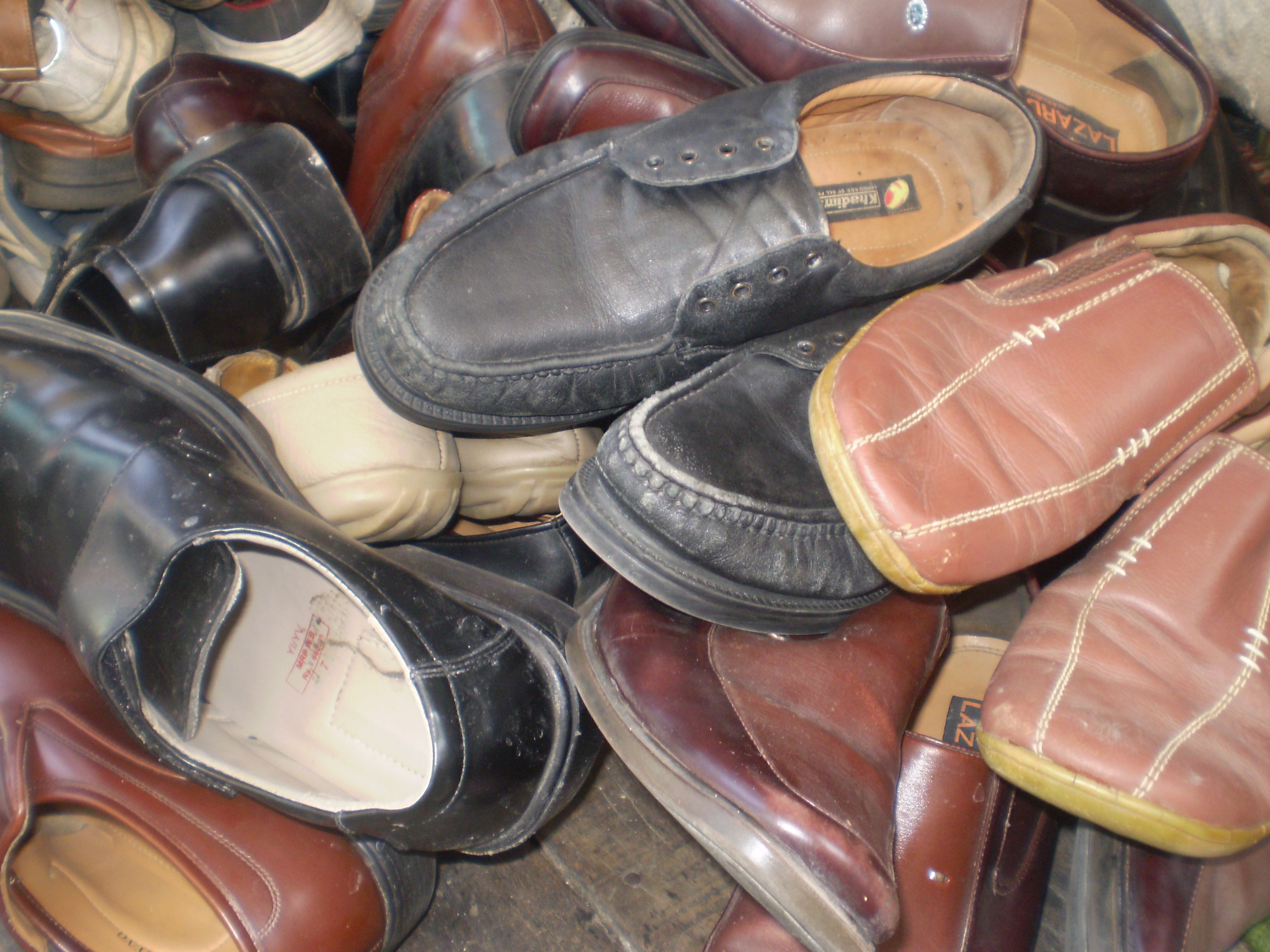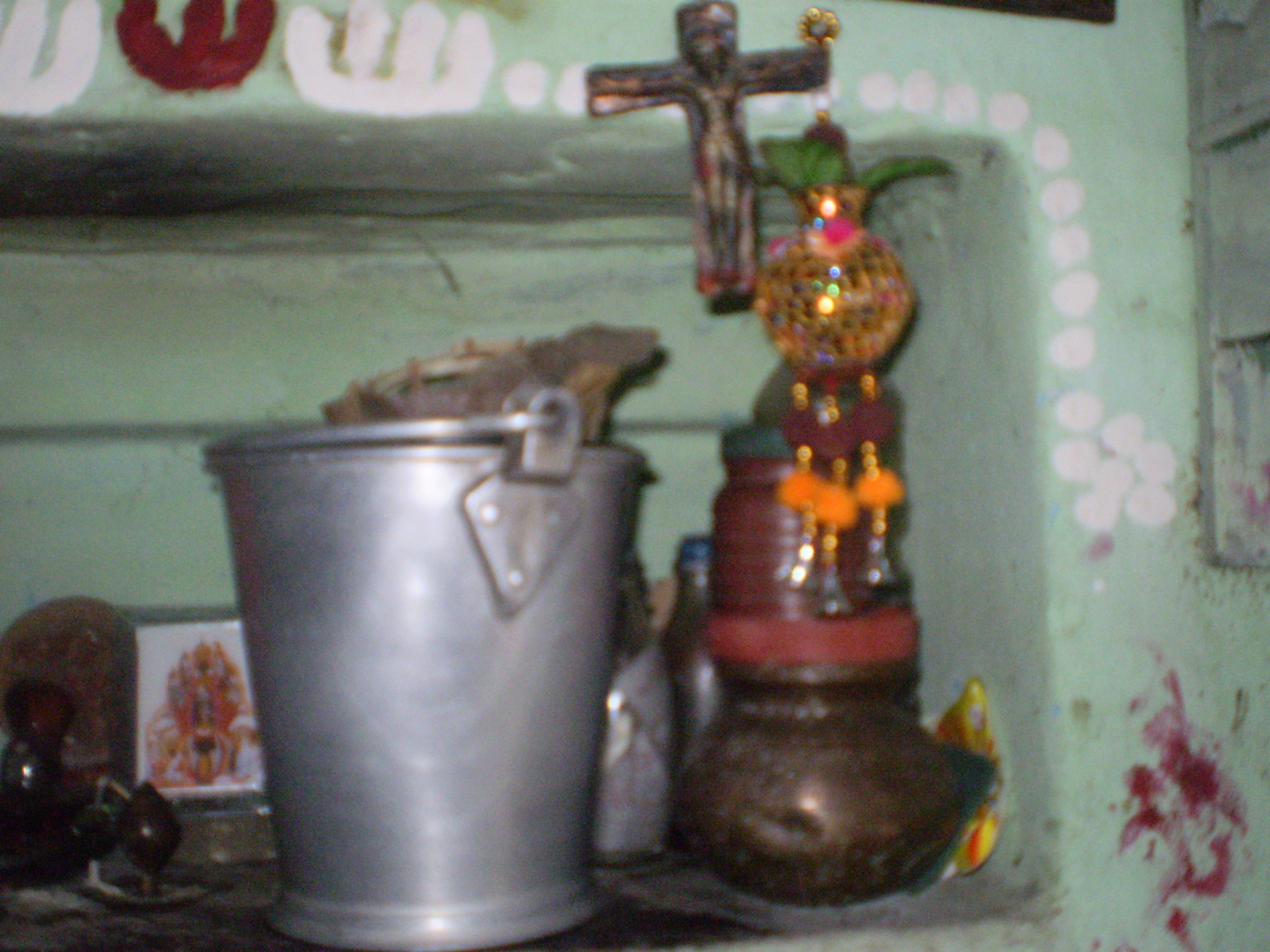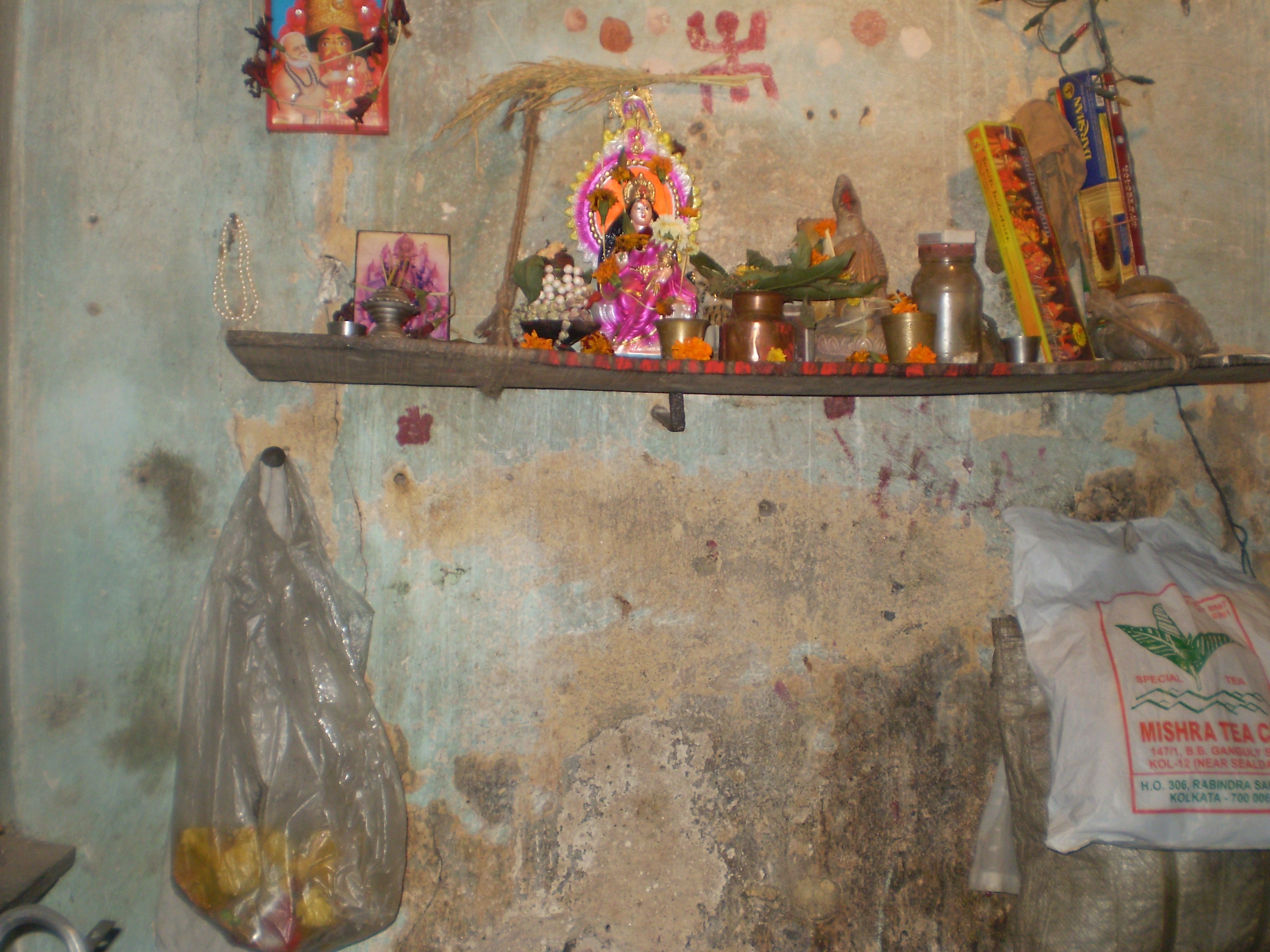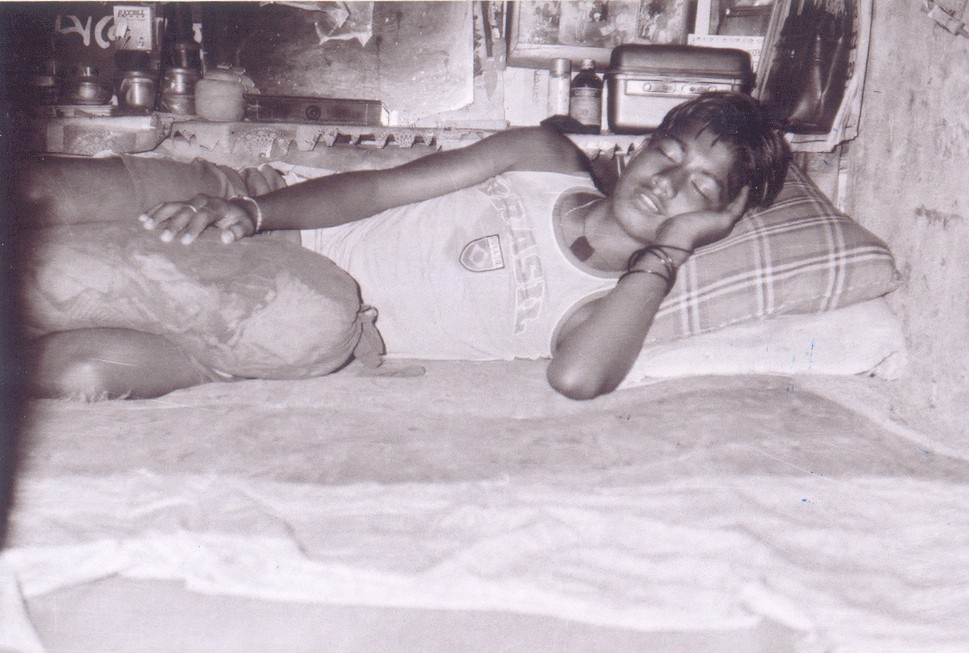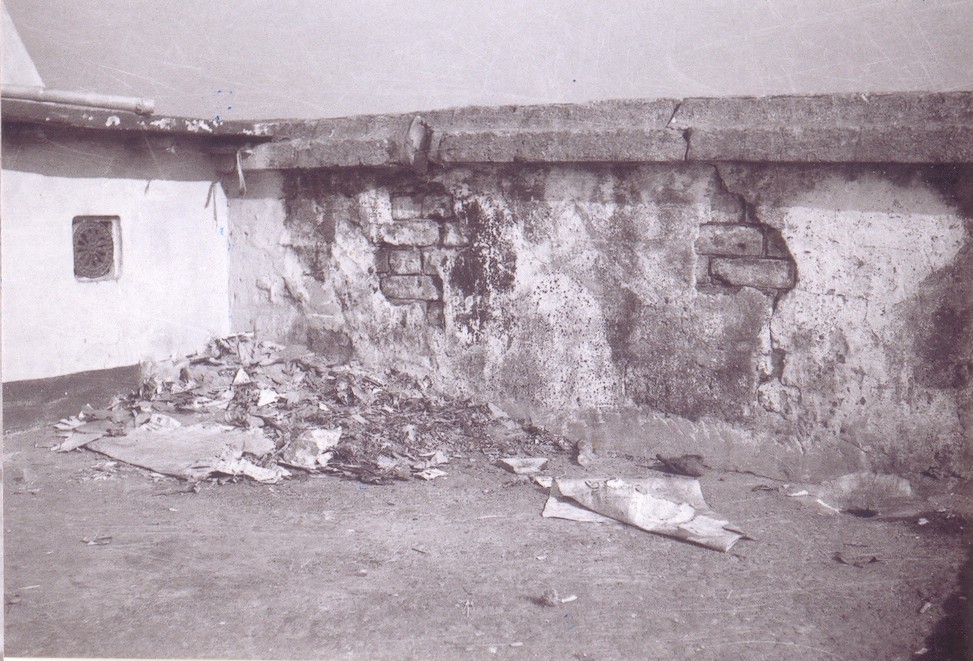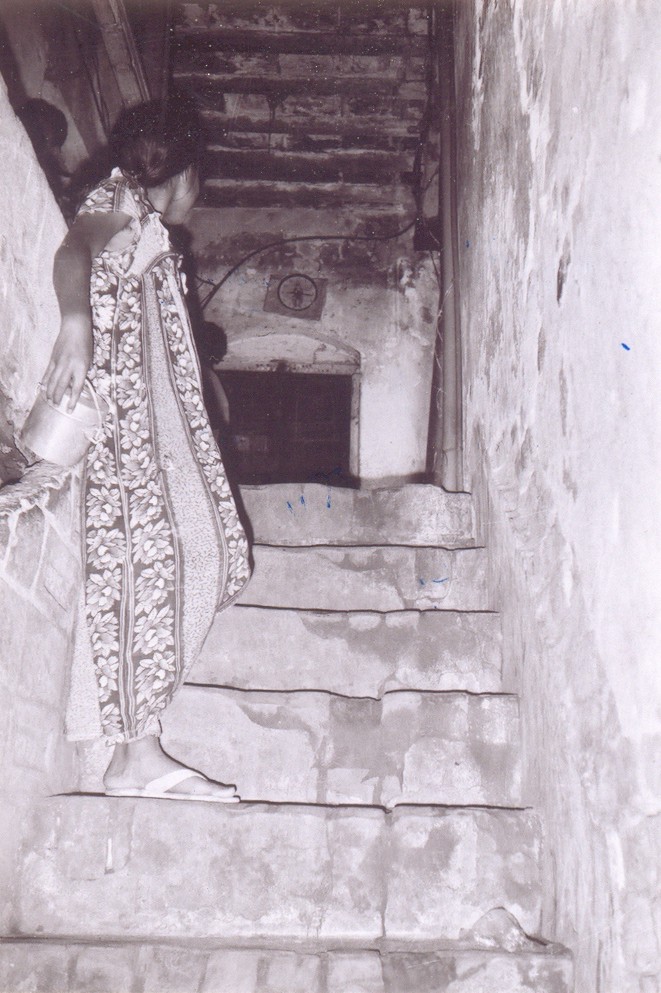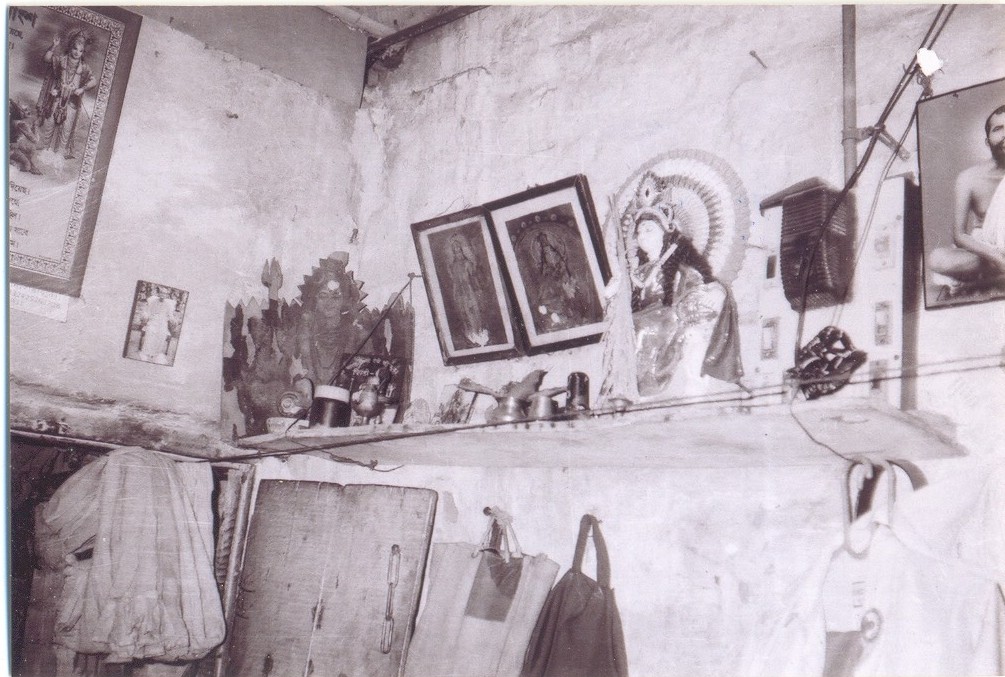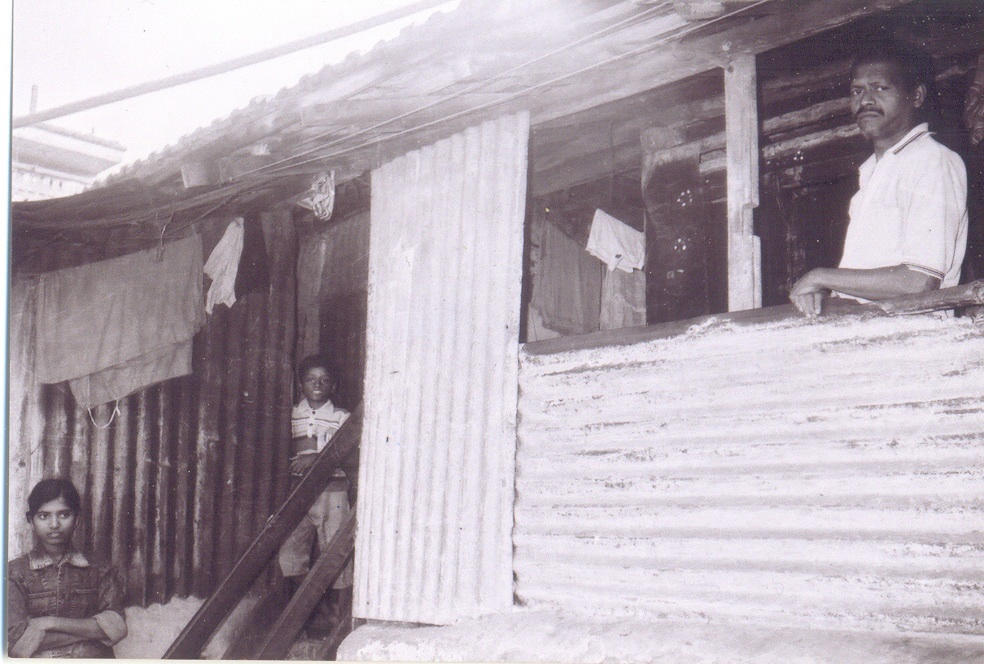Session 9 of Neighbourhood Diaries, supposed to happen on January 28th, was postponed to February 4th. This was because Rahul, Anjali and a couple of more journalists had some urgent work and notified us that they would be unable to attend on the 28th. Since they have been very regular and involved with this work, we decided to reschedule it to next week.
Author Archives: Urbi Bhaduri
Week 8: The Session
Date: January 21
Time: 6:00 – 8:00pm
Venue: Bow Bazaar Highschool
Session Eight: Things in the Para that we want to change: Part 2
Share the Home Assignment from Previous Session
Have each of the two groups of journalists read their piece on the para problem chosen by them. It should contain
- The problem in detail
- Challenges they anticipate
- People in the para who might help them; possibly approaching the para beneficiaries they talked to before thereby involving them in the growth of the para.
- Possible solutions to either solve/lessen the problem
- What methods they might use – eg. Poster exhibition, awareness meetings, writing letters to Newspapers/the Corporation.
Share and discuss.
Today’s assignment:Create an action plan about how each group plans to address the problem they have researched. Make a list of the ways in which Kalam might assist them in carrying out this plan, eg. Supporting with materials, use of camera/voice recorder etc. Make a list of the materials you will need. Share with larger group.
Check Out
How was this session like? Good/bad/okay okay?
Youth Writing on Para Livelihoods
A GARMENT SELLER
By Surojit
Sunil Kumar is a resident of Bowbazar. After having studied till standard viii, he had to leave studies due to problems at home. He is now 24 years old. He has a fair complexion and he loves wearing topis. He sells clothes underneath the Sealdah overbridge. At home he has his parents and two sisters. He shoulders the responsibility for each of them. He earns about Rs. 70/- daily, and about Rs. 2500/- per month. This does not suffice at all. There are the tution costs of his sisters as well. Since he could not complete his education, he hasn’t been able to land a better job. He hopes that his sister will stand beside and support her parents when she becomes independent.
photographs by Surojit
A GROCER
By Tapas
Beside the Shoni mandir in Bowbazar, there is a grocery store run by Rajesh Shau. The shop has a very good sale. In the adjacent store, because the supply of spices and other items was limited, the shopkeeper has installed a Lotto machine. This has resulted in the sales of items going up in this store. This machine can be found in a single grocery shop in the locality. Nearby there is a wheeler selling chhatu and a shop selling kachoris. To the left of the grocery store there is a jeweller’s store. This shop is called Bongolokkhi after the name of the shopkeeper. The shopkeeper passed away owing to high sugar problems. After his death, his wife sits in the shop near the cash box, looking after the finances.
photographs by Tapos
A DOMESTIC HELPER
By Pinky Lal
In the Bowbazar locality in Kolkata, 7-8 women from the Uriya bari in Maathgoli work as domestic help. I am writing about a girl who lives in the 4th floor of the same building. She was widowed 22 years back. Her father is no more. She works in other people’s homes. Since she was very talkative, her parents had named her Buli. Her proper name, however, is Aroti. She does not believe in any caste barrier, but she believes in God. Her life has faced the onslaught of a storm of cyclonic proportions. Previously they used to live in their country home. Her father was called Balaram Maity. He had bought space in Uriya Bari.
Buli is fair, and she has had some education. When she was 20 years old, her parents found a groom for her. The boy had an office job. He was a good person, and lived in Kolkata city. Apart from his parents, he had a smaller brother at home. One month after Buli got married, his family members conspired against him and killed him. Buli did not frame a case against them. After her husband’s death, her in-laws married her off with her brother-in-law. As a result, the latter got his late brother’s job. After some time, her in-laws sent Buli off to her home for a while and in the meantime, confiscated all her jewellery and ran off. Buli returned to find that the landlord had locked up the place. She realized that she had been cheated. Returning home, she began to look for jobs. She met someone who put her in touch with some households which needed domestic help. The same man cheated her out of the little remaining jewellery she possessed. Buli had entrusted her jewellery to him, and he never came back. Her family refused to believe her story. Gradually Buli came to lose her trust in people. She started to work in a household and has been doing so for the last 20 years. She supported her aged parents with her income. Till date there has been no news of her in laws. In 2007 her father passed away during the Rather mela festival. She doesn’t know whether her first husband’s brother, i.e. her second husband, is alive or not, but she considers herself a widow anyway.
She is now 42 years old. She is now considering moving to Bombay to work as domestic help, since she knows she can earn much better there. On the other hand, she thinks of the comparably high room rents in Bombay. The rooms have beds in two tiers there. If one takes the upper bunk, the cost is Rs.1450/-on a monthly basis whereas the lower bunk costs Rs. 1300/-. So Buli decided to opt for the lower bunk. There were people who used to call her “jhi” (a commonly used term for domestic help) while others treated her as one of their own. Working in other people’s homes is considered respectworthy by some and unrespectworthy by others. Even after undergoing such a lot of struggle in life, the fact that Buli is still honestly earning her living, that itself is commendable.
A FISH SELLER
By Tania Mondol
In our locality, there are many livelihoods. One of this is that of a fishseller. The person I am talking of is called Tapa De. He lives in 18, Madan Dutta Lane. There is a beautiful Shiv temple adjacent to his home.
Tapa is doing this business ever since childhood. Every day he leaves home for work in the morning and returns in the afternoon. Apart from this, he also works in an external catering business. He has had some level of education. Even with his education, he was forced to take up this job because he had to take up the responsibility of his parents, a younger brother, an older sister and her ailing son. So, without wasting much thought, he had gotten down to this work. In the beginnings he used to work under other people, but later started off his own business in a small way. His business did well. Neighbouring people are of the opinion that this work of Tapa is a respectworthy thing to do. Everyone respects Tapa as one deserving of respect. He has been doing this work for 10-12 years now. Now his family consists of his wife and daughter apart from his brother, sister and her son. His mother has passed away. He finances his brother’s education. He can be called quite well off now. He sells varieties of fish in the Bowbazar area, and earns enough to be able to meet the demands of an ordinary life.
AN ELECTRICIAN
By Robi Mondol
I live in 18/1 Premchand Boral Street. In my locality I know someone who does good work as an electrician. His name is Kinkar Mondol. He has grown up in this para only. His childhood was one of struggle, yet he was able to continue his education through all the travails he faced. He visits different homes and takes orders. He has been on this job for the last 17 years. The para people are fond of him and respect his work. He gets orders from different places outside Kolkata as well. His family consists of his elder brother, his wife, his daughter and son.
A GOLD SELLAR
By Jyotsna Das
I am Jyotsna Das. I reside in a small bustee in Bowbazaar. There are people with different livelihoods living in our para. From them, I chose to write on someone who is a seller of gold ornaments. His name is Prodip Roy. He lives in a place called Nimta in Belghoria. His family consists of mother, sister, brother, sister-in-law, niece, and his wife. I have heard from him that he along with his siblings had a struggle-filled childhood. Previously they used to live in Bangladesh. There, when fights broke out, they fled and came here, and it was then that his father fell ill and passed away. They managed to make their way to Kolkata. Here they put up at his mother’s parents’ place. His mother used to work as domestic help, and in this way she earned money for their education. She could not give them a lot of education however. They had to leave studies because of lack of money. They started to learn gold work from their maternal uncle. This was their family business. Now he has mastered this work. He has his shop where he works on orders sourced from different showrooms. Many people now learn gold work under him. His workspace is not his own, it has been taken on rent. He likes his work. When one enters Bowbazaar, one sees long lines of ornament shops. In a way then, Prodip’s work has a role in the very identity of Bowbazaar. Something he remembers about his work. One day while going home he lost some gold he was carrying with him. Somebody from the neighbourhood found it and returned it to him. He will remember this day.
A SHOEMAKER
By Rahul Goswami
Today’s writeup is about a man who lives in a room just adjacent to the public lavatory squashed in a dirty corner of Napitbagan Bustee. Musha da is a shoemaker. He is not a bit ashamed about this identity. He belongs to a lower middle class Muslim family. Now he is 32 years old. He has lived in my para for more than 21 years. Previously his father used to do leatherwork, and Musha da learnt the ropes of making and repairing shoes from his dad. He used to live with his mother in a village ancestral home. His village was Panchloki in Diamond Harbour, Palta. After his mother’s death, his father brought him to Napitbagan bustee in Bowbazaar, and instead of books, put leather and tools of shoemaking in his hands. From then on, Musha da has made his life as tough as leather. When I went to interview him, Musha da initially thought I had come to make fun of his work. But then, when I explained my projects to him, he said, “I had thought, Babu, that you had come to poke fun at my work. Now that I understand your reasons, I don’t feel that it is important to write about my work.” I was surprised by Musha da’s words. That a shoemaker from the lower orders could become the subject of anyone’s writing was unbelievable to both Musha da and his wife. I had only one thing to say to him, that to me Musha da was a good designer, since he thought up new ideas and created new shoe designs using his creative mind.
I talked to some shoemakers around as well. All of them said that shoemakers do not have a good name. They added that their state was very bad. Their parents usually live in their country homes. But Musha da doesn’t have anybody except for the refuge of his wife. Musha da’s 3-4 year old daughter died in an unfortunate incident. Nobody perhaps remembers her face. Musha da is a quiet person. His black, wide body at work does not give a clue to the pain within. His room is like a dark, claustrophobic pigeon-hole. Musha da himself does not recall what colour the walls of the room had been. It is a 6 foot by 4 foot room. There is no bed, but a chatai and pillows are laid out on the floor. The walls are nearly covered by hanging heaps of saris and other clothes. There is no separate space for cooking, the lavatory has been curtained off to create a small kitchen. There is no window in the room, not even one as small as a mirror. The smell of the room is a peculiar medley of leather smells, the smell of cream shoe polish and dampness. Though it is not apparent from outside, once you enter the room you feel that it has ended even before it has begun.
Though Musha da is a quiet person, he is very efficient about finishing work. He gets up at 6.30 in the morning, finishes his bath and doesn’t ever miss his namaz. After that he leaves home with his tools and doesn’t return before 2 o’clock in the afternoon. He will sit outside his room till evening and repair shoes. About 7 o’clock, he goes off to the chora bazaar and sits there with his handmade shoes till 12 in the night in the hope of selling them. Musha da’s wife wasn’t able to answer my questions to satisfaction. The reason may have been hesitancy or ignorance. But she volunteered the information that Musha da has never abused her in a drunken fit. She also pointed out a good habit that Musha da has: Whenever he gets a good sum of money, he saves half of it and spends the rest in purchasing things needed at home. When the interview was drawing to a close, Musha da asked me to purchase a pair of shoes from him. I told him that I would drop in at the next discount sale. When I was leaving we mutually said “Allah Hafiz” to each other. Whoever is sitting there above us, may his good gaze be upon Musha da, on his little room by the public lavatory, and on his work.
A SEX WORKER, JYOTSNA
By Anjali
Jyotsna was born in a village in Murshidabad. She was born after two children. Her name suits her looks. Her father used to work in the fields. They were very poor, so they couldn’t educate her two brothers. Jyotsna had, however, studied upto class 2. She did not enjoy studying, and therefore left it. When she was 11-12 years old, she was married off in a social ceremony. Her puberty started 3-4 months after her marriage. Her husband used to live in an adjoining village. He used to visit Jyotsna’s home sometimes. It was kind of love at first site for him. Her in-laws did not much like her. Her father-in-law had passed away. Her husband had a passion for football. Her life was smooth at this juncture. After some time, she gave birth to a bay daughter. Two and a half years after marriage her husband had an accident. During a game of football, the ball hit his genitals. This resulted in bleeding during intercourse. Jyotsna forbade him to indulge in such painful sex, but he did not listen to her. If she did not want to have intercourse in such painful circumstances, her husband used to get angry, and gradually this turned top suspicion. He began to suspect that she might be having an affair. Jyotsna tried her best to convince him that this was not true but he was not convinced. Hardly 7 months after the football accident, her husband committed suicide by consuming poison. Her in-laws alleged that it was because of her that he had died, and sent her back to her father’s house. Here also there were problems waiting for her. Her brother hardly looked after his parents, leave alone having the inclination to look after his sister and niece. He was busy with his own wife and children. Gradually she felt she was becoming a burden to her father’s family. Though she earned some money, it was barely sufficient to feed or educate her daughter. As she was a widow, no one in the village was likely to marry her at this point.
Jyotsna’s maternal uncle’s daughter was a sex worker. Jyotsna knew about the red light areas of Bowbazaar, Shonagachhi and Amtala. One day she also was compelled to enter this profession, for the sake of her daughter. This was because one could earn a lot from this livelihood, which she could use to make her daughter’s future beautiful. Jyotsna came over to Bowbazaar with her maternal cousin, leaving her daughter back at home with her mother. She informed her mother only that she had become a sex worker, but her brother and sister-in-law also came to know this and stopped communicating with her on this account. Nowadays, she sends money home every two months. This money supports her daughter and her parents. She is doing this work for 1 year 3 months now. Her maternal cousin is now no longer a sex worker in Bowbazaar, she has gotten promoted to a malkin (pimp). She has many girls working for her. Jyotsna and some other girls live together in a small room. She does this workm regularly now. Everyday she burns herself, allowing herself to be torn apart by some jackals. She tolerates this only thinking of her daughter. She does not want to do this work any more. But there is no other way now, because once a person has fallen into this fire, she has no option but to get burnt. In the eyes of society, Jyotsna is a “bad” woman now. But if society ever asked why she had chosen this path, then it would not perhaps have seen her in this perspective. This self sacrifice is for her daughter only.
AN AYAH
By Supriya
Her name is Sheela Mondol. She is an ayah, looking after sick people in the Medical College hospital. She works both in day and night shifts. She cooks in the morning if it is a night shift. In the case of a day shift, either of her two daughters takes a day off from school and does the housework. Her husband, Shankar, is an electrician. She has two daughters and a son. Her elder daughter is Purnima, she is in class 11. The younger is Shampa, she is in class 8. Her son is called Bikram, he studies in class 2. The families of the patient pay her ten rupees as bakshish apart from her standard wages as an ayah. She has been doing this work for 8 years now. The financial condition of her family is more or less comfortable presently.
Their original home was in Jomu, but as of now they are based in Kolkata. Here they had two small rooms to stay in. The dividing wall between these two small rooms has now been broken down to form a larger space. They have a pump at home, so they don’t face any water crisis. They had kept birds as pet before, now they have been sold off. They have a bed inside the room, as well as one outside. Outside the room they have some flowers in pots, which they have kept attached with the wall. In front of the room there is also a small temple. They offer the flowers blooming in the pots to the deities in the temple. Beside the temple there is a mansa tree. During Shiva ratri, everyone fasts and offers puja. Apart from this, one of her two daughters or her son offer puja daily.
Week 7: The Session
Session Seven: Making Changes in our Para
Date: January 14, 2008
Time: 6:00 – 8:00pm
Venue: Bow Bazaar Highschool
Share the Home Assignment from Previous Session
Have each pair of journalists read their piece on the para livelihood chosen by them. Share and discuss.
Today’s assignment: Making Changes in Our Para
- Let’s brainstorm the various kinds of issues/problems/dislikes in our para.Which of these problems/issues/dislikes can we take personal responsibility for? Which look like they are capable of being changed if only we try?
- Ask them to choose two problems that they think need attention, which it is possible to change if they take initiative, not only a personal problem but that which is affecting many people in your para.
- Give each group a problem and ask them to brainstorm solutions which they can practically work on to get rid off/lessen the problem. Think of different people/spaces you can go to, to ask for help in solving this problem. Think of what mediums we might use to address this problem?
- Create a skit presenting the problem and the solution.
Skit Activity:
- Enact a problem you see emerging in your para (from your own perspective) and enact a solution you think is feasible (from your perspective).
- Ask audience participants and Facilitators to respond to the presented skit with their thoughts, ideas, perspectives.
- Remind participants, if it does not come up on its own in skits or discussion, that they can use different media to spread awareness and address the problem. It may be making posters to raise public awareness in the para, writing letters to Newspapers/the Corporation, asking for help from para beneficiaries and thereby involving them in the growth of the para.
Take Home Journalist Assignment: Write an article researching a Problem/Issue of the Para.
- From when are the para residents facing the problem?
- Who are especially affected?
- What are the steps, if any, that para people have taken to get rid of it?
- Identify para people like you who want to do something to overcome the problem. Can you work together?
- Who are the people who know about it but still ignore it?
Check Out
How was this session like? Good/bad/okay?
How do you feel about participating in the coming sessions? 1 word
Youth Writing on Personalities of the Para
Youth Writing from Session Five
Session Five's journalism assignment was an investigation and interview on different personalities and character of Bow Bazaar. Through our discussion in the session, the youth journalists came up with Goondas (neighbourhood bandits), Neighbourhood Beneficiaries, Heroic Survivors, and Bhashan Baaj (folks who have something to say about everything).
For this assignment, the journalists were put into pairs and were assigned to Neighbourhood personality that they are intrigued, inspired, excited by. The following are their final pieces. All writing has been translated from Bangla to English.
A Kind Hearted Para Benefciary: Monoranjan Das
by Tania and Jyotsna
A man stays in the house next door to Tania, he is very kindhearted. His name is Monoranjan Das. He has helped out many people, and still does so. He has an ayurvedic medicine shop. He is involved in politics and is a member of the Congress party.
He is a devotee of Goddess Kali and performs puja every new moon. He is married. He is very fond of children. He told us that he has had a hard struggle-filled childhood. He is very erudite and people of the para both love and respect him. He gives away blankets in winter time to the poor and needy. He provides medicine from his shop to people when they need it. He does not have any false pride, no jealousy, no greed. His mother, wife, brother, sister in law, daughter and son make up his family. He is very happy living with them. Nobody has any complaints about him. No one fights or picks quarrels with him. He helps out everybody.
A Surviving Woman: Tulshi Mashi
by Supriya and Pinky Lal
In Tulsi mashi’s family, there were five siblings in all, four sisters and a brother. Earlier they used to live in a mud home in the village, now they live in a cement and stone house. There was a lot of poverty in Tulsi mashi’s home. Her mother got all the siblings married off after a lot of hardship, all excepting Tulsi and her sister Chhaya. Chhaya had a love marriage. Tulsi’s parents got her married with a boy from Puruliya residing in the next village. Her son was a good boy; he died of illness.
The younger brother of her husband beat his mother, and the old lady, unable to bear this, consumed poison and died. The good family fell apart. Tulsi being young still, her parents got her married with another guy from Kolkata, called Nimai. Nimai loved his wife very much. But after some time, influenced by his elder brother and sister in law, he beat her. He softened again towards her when she became pregnant. Tulsi gave birth to a daughter, and named her Mongoli. He again started creating disturbances at home. He started beating his wife again. Tulsi thought that instead of dying bit by bit every day, it was better to embrace death all at once. She went to Howrah bridge, thinking whether to throw her daughter into the water of the Ganges first or to jump in herself. Then she reconsidered, thinking that instead of dying and giving up, she ought to make efforts to stand on her own feet. She started begging for rice. She had a very small home at this point of time. Someone called Kanta Prashad had a soft corner for Tulsi’s daughter and left her some property. Tulsi started working as a domestic help in people’s homes. Her husband, who worked in a copper store, began to suspect that there was someone else in Tulsi’s life other than him. Tulsi’s daughter also was growing up and had been put in school. After some time, Tulsi again had a son. When he turned three, Tulsi’s husband started beating her again.
One day she sat down at a crossing of three lanes and began to cry. At this juncture, a lady called Bubumashi came and offered her a job – that of selling alcohol. Subsequently Tulsi, having sold off her old possessions and saved money from her current job, succeeded in building her own cement house. Nowadays her husband does not beat her any more, since there is regular flow of money earned by Tulsi in the household. Her daughter, after studying uptil Secondary standard, was married off to a guy called Tapan living in the neighbourhood. Tulsi masi married her daughter off amid great celebrations. She in turn had a son called Biswajit. Tulsi masi’s son is now preparing for his Secondary examination, she will marry him off in 2008. She has been selling alcohol for the last 15 years.
She thinks only one thing– that there was a time when she had to beg for rice. But now she has been able to stand on her own feet. She has come a long way.
More Writings and Photographs to be Posted Soon….
Power Cut: Session Seven Rescheduled
Date: December 7, 2008
Time: 6:00 – 6:15pm
Today's session was postponed to next week. As Bina and I got fifteen minutes into the session there was a powercut, rendering it impossible to continue. We were in the process of listening to the journalists’ writeups on their chosen livelihoods in the para. We decided to reschedule it from the 7th to the 14th of the month.
Until then.
Week Six: The Session
Date: December 31, 2007
Time: 6:00 – 8:00pm
Venue: Bow Bazaar Highschool
Session Six: Livelihoods and Industries in your Para
Share the Home Assignment from Previous Session.
In a circle, pass out session 3’s home assignments in the form of printed articles.
Have each pair of journalists read their piece on the para personality assigned to them. Share and discuss.
Today’s Assignment: Livelihoods/Industries in your Para
Facilitator’s Introduction to debate activity: In our para we see people making a living in different ways. Let’s brainstorm the various kinds of jobs/professions/livelihoods in our para.
- Write each different livelihood on a chit.
- Create a pool of these chits from which each participant selects one.
- Keep two spaces on the floor, one marked with a (1) “respect worthy” sign, the other with a (2) “not respect worthy” sign.
- Ask each participant to think whether the livelihood on his chit is deserving of respect or not and to place it under the chosen category.
- Now choose a chit one by one, ask whose chit it is, ask the participant why it is either (1) or (2), and throw it open for a debate with the group.
In the last session, while describing Tulsi Masi earning a living through selling “chullu”, several opinions had come up, voicing that it was not a very respect worthy thing to do. This exercise will allow for an examination of the attitudes of the para journalists towards different kinds of professions in their para.
Take Home Journalist Assignment: Investigating Para Industries
- Ask each of them what profession in the para they would like to investigate.
- Ask them to include photos in their article.
Guidelines:
Have your research focus on 1 person engaged in your selected livelihood. A typical day of work. How, where, when, why did you start out What do you like, What do you dislike about work Ask other people in the para what they think of the profession Think about how this profession is shaping the identity of Bowbazaar.
Check Out
How was this session like? Good/bad/okay okay?
How do you feel about participating in the coming sessions? 1 word
Week Five: The Session
Date: December 24, 2007
Time: 6:00 – 8:00pm
Venue: Bow Bazaar Highschool
Session Five: The People in your Para
Share the Home Assignment from Previous Session
In a circle, read aloud the stories/articles each journalist wrote for their chosen landmarks. Share and discuss. If the assignment wasn’t completed, ask why? And what can change for next time in order to make sure all assignments are completed.
Reminder to Journalists: Remind Journalists that they have to complete assignment in order for us to progress as a group on our neighborhood narratives. As journalists, there are numerous stories occurring every day – and we need to keep up in terms of deadlines.
Pass out the Para Badges to each journalist.
Today’s Assignment: The People of your Para
Facilitator’s Introduction: In our para we see many types of people. Just like in many films, there are many types of different characters. There are villains, heroes, enemies, lovers, etc. Similarly, in our para there are different people who are embody different roles/characters.
Ask the group: Can you think of different people in your para? Brainstorm with the group and make a note of the names/types of people who come up.
Who is the most powerful person in your para?
Who is the weakest person in your para?
Who is the most successful person in your para?
Who is the most oppressed in your para?
Who is the happiest person in your para?
Who is the scariest person in your para?
Who is the most trustworthy person in your para?
- Divide the participants into a total of 3 groups. Each group chooses a character and discusses what questions they would ask/what are the problems they anticipate while interviewing this character in person.
- Now two volunteers come up from each group and act out the interview process. One of them can act as the character while the other may act as the interviewer. Each group gets feedback from the rest of the participants and the facilitators. This dummy interview prepares them for facing these different people in the real world.
- One of them can act as the character while the other may act as the interviewer. This dummy interview prepares them for facing these different people in the real world.
Take Home Journalist Assignment: Personality Profiles
Divide the participants into pairs. Assign them one neighborhood personality (which emerged from the discussion) to interview. Ask them to include photos in their article.
Check Out
How was this session like? Good/bad/okay okay?
How do you feel about participating in the coming sessions? 1 word
Youth Writing: Vignettes of the Homes of Bow Bazaar
In Session Four, the participants had been assigned to go to the home of a friend, research it, take photos and write an article on it. On day five, the writers brought their writing to the sessions and shared their pieces. Some had covered the home of the friend in a question-answer format, while some had written in the form of an article very close to journalistic practice. The perspective was that of half insider, half outsider, a balance between being a friend belonging to the same neighbourhood, as well as a journalist. The stories follow in English translations. All photographs were taken by the journalists themselves on a Nikon SLR with black and white film.
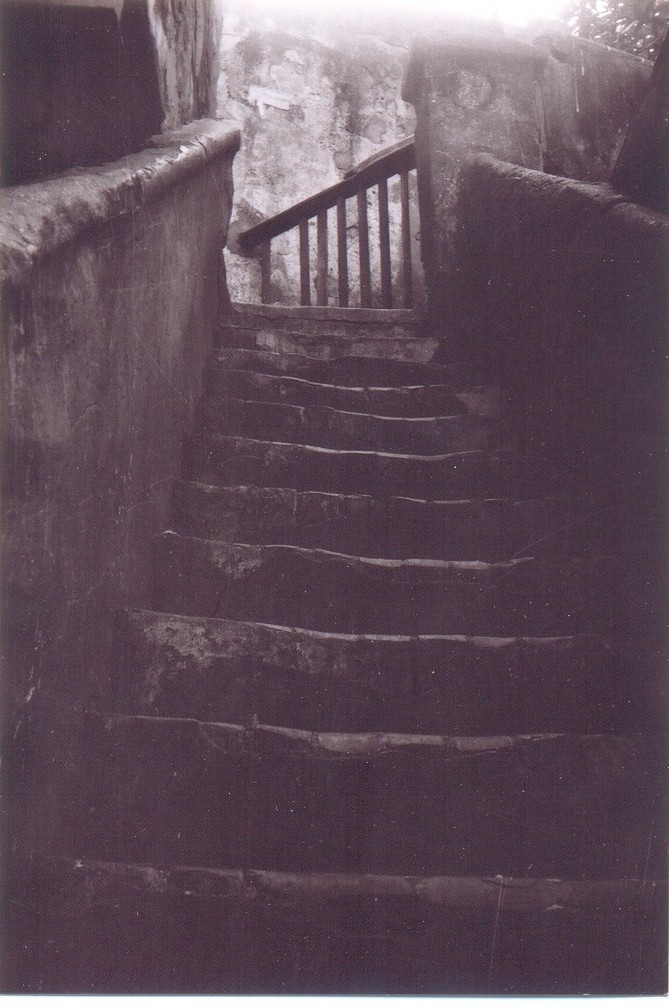 Their home is four storeys high. The steps are small. It is deserted in the mornings. The smell of garbage. In the afternoons, the smell of cooking comes from all the rooms. In the early afternoon, the sound of people squabbling. All of their rooms are smallish; they have trouble sleeping. He thinks if their rooms were a little bigger, it would have been nice. The house is built of cement, sand and brick. There is a banyan tree in their home. The house is quite old. This means, if the tree is cut down, their house may fall down too. The banyan tree is good for the summertime because a wind blows, and there is shade. In the winter it is not good since the sunlight does not fall properly and there is no wind. Trees are always beneficial for us because they give us oxygen.
Their home is four storeys high. The steps are small. It is deserted in the mornings. The smell of garbage. In the afternoons, the smell of cooking comes from all the rooms. In the early afternoon, the sound of people squabbling. All of their rooms are smallish; they have trouble sleeping. He thinks if their rooms were a little bigger, it would have been nice. The house is built of cement, sand and brick. There is a banyan tree in their home. The house is quite old. This means, if the tree is cut down, their house may fall down too. The banyan tree is good for the summertime because a wind blows, and there is shade. In the winter it is not good since the sunlight does not fall properly and there is no wind. Trees are always beneficial for us because they give us oxygen.
Their room is very small. If a couple of guests come, they can sit in the room. If there are more, they have to be seated on the rooftop. They will sleep outside and let the guests sleep in the room. There is no temple in their house. Birds fly about in their room. There are pictures of gods in their
room.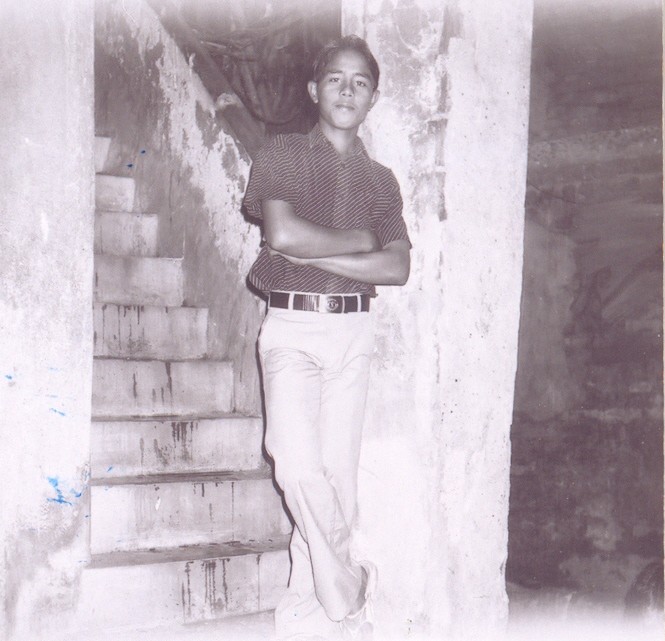 He really likes the staircase, because, if he ever feels sadness in his heart, he goes and sits on the steps and feels lighter.
He really likes the staircase, because, if he ever feels sadness in his heart, he goes and sits on the steps and feels lighter.
He has friends but he does not tell them anything. He just sits on the steps. He wants to change the rooms because they are very small and they have difficulty managing to sleep there. Their rooftop is small too. The place where the tap is set into the wall feels cold, so do the floors. The place where the cooking happens is a little larger.
He desires to grow in life, study more and become a worthy human being. He also desires to bring up his two brothers to become good human beings. He will stand beside his parents when he grows up. He will look after them as much as he can. There is a bathroom in the ground floor of their home. A bad odour comes out from there. He wants the bathroom to be cleaned, but since nobody says anything, he also doesn’t say anything. He thinks, since everyone else does not smell anything bad, then he can do nothing even if he smells it. He has to live with it. If he was able to, he would have had the bathroom cleaned. He hopes never to do anything sinful in his life. The path he treads should never be the path of sin. None of his days go well because his home is so small; he always has to sit on the steps.
An Interview on Salman's Home
by Puja
What can be seen immediately on entering your home?
Immediately on entering the home, the drinking water tap can be seen.
What smell do you get at first? At first, you’ll get the smell of chullu in my house.
What sound do you get on entering the house? On entering the house, I hear the sound of quarreling.
What is your favorite thing in your house? In my house, my most favorite thing is my pillow.
What is your house made of? It is made of brick, cement, sand, iron and stone.
What is the history of your house? Earlier our house was much better. Slowly slowly it’s becoming dirty. Previously the residents were good, nowadays they are becoming jealous.
What image do you remember? I remember a scene of football playing.
I saw the meter box immediately on entering Robi’s home. The bathroom, a staircase just beside that. I could smell food cooking. I could hear the sounds of people, children yelling. I touched the flowers on the tree there. Robi’s mother’s name is Shefali Mondol. She does household work. They are living in this house for 18 years. They are surrounded by relatives like uncles and aunties, cousin, grandfather.
How do those who live at home spend their day? Elder uncle and father do electric work, and elder aunt is an ayah at Medical College Hospital. Apart from this, more or less everyone does household work, also going out for work sometimes.
How many people at home? In their room itself, three people live, whereas in the house there are forty people in all.
What is the house made of? The house is made of cement and sand.
Tania Mondol’s Home
by Joytsna
Tania Mondol’s home is inside a gali (an alley) on Madan Dutta Lane. The alley appears clean and quiet. On entering there house, I noticed a deserted alley with only a couple moving about. I saw Tania’s elder aunt cooking and her grandma sleeping. Her mother was sitting. I smelt egg frying and spice paste being cooked. I felt the coldness of the wind blowing and heard the sound of the khunti (cooking handle) moving about in the kadai (cooking utensil).
There are seven people in their home – Tania’s parents, brother, elder aunt and uncle and grandmother. Tania’s mother, elder aunt and grandma do the cooking, fetch in water, wash utensils as well as clothes. Her father and elder uncle work outside. Her brother plays at home, while Tania goes to school. The house is made of cement, sand, brick, iron rods and bamboo.
Tania likes the Narayan temple in her home, as the god there is known to be very alive and the temple is small but beautiful. What she doesn’t like about their home is the scarcity of water. Water hardly comes in. Even when it comes in, it stays for a very short period. An old fact about their home is that, in older days, when their home was built of earth, a lot of quarrelling used to happen between the members of the family. When it was changed to cement, then the quarrelling also lessened. The atmosphere is good now, and the ones who live there now live well.
Jyotsna’s Home
by Robi
What do you see on entering their home? You come upon a mirror directly on entering the home.
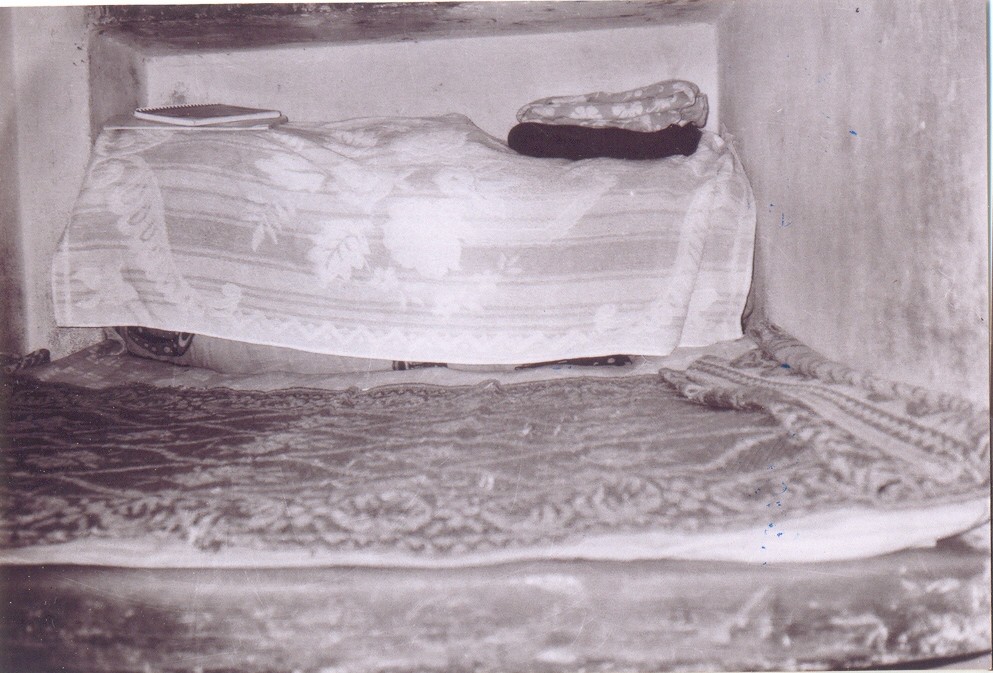
What smells do you get there? I can smell acid here.
What sounds? Here I can hear people conversing.
What do you like in your home? My bed.
What is your home made of? Sand, cement.
Who are the people living in your home and what do they do? Mother, father, brother, elder sister. Mother works in a hospital, father has his tea stall. Brother and I go to school while elder sister stays at home.
What is an old fact about your home? Earlier our house was earthen, and dogs lived here. Thereafter the earthen house was broken down and a cement home was built, and we started to live here. There is a temple in our house, and a banyan tree has taken root inside that.
Pinky Lal’s Home
by Supriya
Their landlord is very good. His name is Sambhu Sen. Their house id 4 storeys high. The stairs are very dark. In the part where there is the tap, you can always hear the sound of buckets. The sound of quarrels also, sometimes. People of three different kinds of origin live in their home – Oriya, Hindustani and Bangali. You get the smell of smoke here both in the morning and in the evening. In the 4th storey, only four rooms are big while the rest are small. Otherwise, the rest of the rooms in all the other storeys are on the smaller side. Despite the small size of the rooms, they don’t face any problem. Their home is made of sand and cement.
They are three people in their immediate family- her parents and Pinky. Because of the poverty in the family, her mother works as a domestic help in people’s homes. Her father works with sand, cement and colours. But now their days are going by in a much better way. She wants to study more. She also wants to learn the computer. She wants to be there for her parents when she grows up. She wants to look after them according to her capability. She wants to stand on her own feet, she doesn’t want to marry.
The roof on top of the fourth storey is a favorite place of hers. If she is sad for any reason, she feels lighter when she goes up and spends time on the roof. She doesn’t like the steps in her home, since they are very muddy and are only cleaned when some programme is coming up at home, never otherwise. In the night time, it feels like a haunted house. There is a big Jagannath temple in their house. There are also four shishu trees in her home. There are five toilets in their home. There are only two tiled rooms in their house; all the other rooms have tin roofs. The verandah outside the rooms is like another room by itself. There is a separate place where all their utensils are stored.
Anjali's Home
by Rahul
For the last 16-17 years, Anjali has been living with her family in the second storey of a house within the slum located close by Shakharitola Post office on Shoshibhushan Dey Street. There are 6 members in her family—her father, mother, three brothers and herself. Anjali’s home doesn’t really live up to what she would like it to be. Anjali dreams of a home with cement roofs and walls of brick, cement and concrete, with solid staircase leading up to the upper floor – but these have not come true. Anjali’s family and her home are not unknown to me. But I stumbled at every step when I tried to write an article about her home.
The main door has recently been repaired by the Kolkata Corporation, which has replaced the wooden structure with one made of iron. The door is green in colour. Crossing the door, there is a small room on the left, and adjacent to that, there are wooden stairs leading up to the upper floor. These look quite firm and solid, but while climbing up them they sway a lot. The floor upstairs looks rather roughly put together, broken at places, and going up and down randomly. In the second floor, a total of four families live, including Anjali’s. All the rooms are small-ish, made of tin and tiles.
All three brothers work, they are not at home all day. Her parents are both working. Anjali’s room is small, about 12 or 10 feet, but neat and clean and tasteful. What does the room not contain! There is bed, small showcase, TV, music system—and once you sit on the floor you can see various cooking utensils neatly stacked. The bed has been raised up using four-five bricks. The room has been divided into two parts—space is very limited yet very well done up. Anjali’s room is light sky blue. The roof tiles are covered with a plastic sunshade. One of the advantages of this is that no electric lights need to be used during the day. Also, because of this, the room remains quite bright. The cd player was on at low volume. The odour of kerosene coming from the recently turned down stove seemed to bring down the temperature all the more in the already cool room.
Anjali is now a student of standard twelve, due to appear for her Higher Secondary exams. She is quite a bright student at Victoria Institution School. She dreams of standing on her own feet when she grows up. The school she used to attend before being a morning school, Anjali had to get up early. But now this school starts later, and so she gets up in the morning only at 8.She freshens up, has tiffin, and then sits down to study according to routine. School is at 11, it gets over at 4.30, when she returns home, only to attend coaching classes from 5 onwards. She returns home at 8, has tiffin, watches TV, does her studies too. This is the same routine for her, be it summer, monsoon or winter.
On holidays, she leaves this tin cage of hers and goes off to her country home with her family. Anjali is quite happy living with her family in this house with its tin walls, its tiled roof, its fragile staircase and its shared bathroom. Her most favorite thing in the house is her bookshelf, which she loves dearly. But she is scared too. If suddenly one day the tiled roof and the tin walls collapse, how is she to save her most favorite possession? So she dreams of her own house with a firm, stable roof over her head.
Surojit’s homeBy Apurbo
What Surojit likes about his home
In his home, Surojit’s favorite place is the wall of his rooftop, which he has been seeing since childhood. However he does not go there all the time. Only when he gets some time off, he goes there in the evening and enjoys himself in solitude. The place looks quite old. The rain has left its marks on it. The dry smell of moss, the wind blowing freely, and the silence – all these make it a very romantic spot.
What Surojit does not like about his home
What Surojit dislikes the most about his home is the disorganized way in which they keep the water bucket here and there on the floor. Even though they own the place, no one has bothered to protest. Once you enter through the gate, the stairs are to the right. The place is small, and slippery with water. Accidents can happen any time. A kind of damp, rotting smell emanates from the place. The place is filled with water buckets. This creates a lot of problems for the people who live here, yet they compromise and stay on. Surojit also has to compromise.
Tapas’ homeBy Anjali
A good looking house is visible from a distance. There is a garden, there beautiful flowers are blooming. The trees are fruit laden. The house is painted light violet. The adjoining house is my friend Supriya’s. Her house is also beautiful, similar to mine. Robi and Sushmita also live nearby. We all go to the same school. We go and return by bus. After returning from school, we go to tution classes on our own transport. We do our studies and then play the remaining time. We do not have to do any other work…
Suddenly I hear mother saying, “Tapas, get up, it’ nearly 9.30. Don’t you have school?”
On awakening, I find myself in my bed. I realize that I’ve been dreaming all along. Mother tells me, “Your father and brothers have already gone out to work, and you’re still in bed!”
I freshen up then and all of us make our way to school. But not in our own car, on foot. On the way I keep on thinking about my dream. At school also I daydream about it all the time. But when I return home from school, down our gali, something moves inside me. The heart twists when I look at my actual home. Our home is three storeys high. We live on the rooftop. Brick walls, tin shade. In the walls, the bricks are crumbling away, the paint peeling from them. The house is not our own – it is rented. The house is quite old, nearly 80-90 years old. My father says that earlier there were jungles and fields here. This house is very different from the one I had seen in my dreams. Unlike the dream home, it does not have a garden, it does not have open spaces. Here the buildings have been clumsily built side by side; no air or light comes in. However, my room lets in air and light, since it is situated on the rooftop. There is a common bathroom just beside my room. The house is located in an old locality of
When I am thinking these things, a voice interrupts, “Tapas, go and fetch water.” On turning I come face to face with ma. I climb the dark stairs, up to my bedroom. After fetching water, I have some tiffin and then we all of us make our way to the tution class. After returning home, I have dinner. When I am about to go to bed, I think of only one thing, “Will my dream never come true?”
Youth Writing: Landmarks of Bow Bazaar
In Session 3, the participants had been given the following assignment to research and work on a Neighborhood Outing and Writing Take-Home Assignment. The youth journalists were instructed with the following guidelines:
What do you think is Bow Bazaar’s Landmark?Research your chosen landmark and write about its history. Ask friends, families, acquaintances about your chosen place and what they think about it, what they know about it, what personal/significant stories are related to it. Try to uncover any local stories, histories surrounding your chosen place.Keep in mind the Five Senses: Smell, Sight, Sound, Touch, Taste.Also, keep in mind you Gaze – you are Para Residents.
The participants were divided into 3 groups according to the place they had chosen as their favorite landmark – a local Punjabi hotel, the Bowbazaar Kali mandir and the Shiv Mandir.
At the beginning of session 4, youth journalists came to the workshop with their assignments. Some of them had rough and skeletal pieces of writing, while some had more detailed and lively vignettes.
Come read the about the selected Bow Bazaar Landmarks from these young writers. (All writings have been translated from Bangla to English).
Surojit's Bow Bazaar Landmark: The Famous Punjabi Hotel
As soon as you reach the Punjabi Hotel, what you hear first is the sound of conversations and the din of people who are going in. A light wind brings the smell of various food items to my nose. You can see shoe shops, the vegetables in the market being bought and sold. The touch of food items from the hotel and the fuchka. It is a very old hotel. Earlier it was renowned, everyone knew of it. Besides, the proprietor of the place was a friend of my mother’s.
Rahul's Bow Bazaar Landmark: Bow Bazaar Kali Mandir
The sound of many bells, conch-shells so that my chest trembles from the impact. The priest is continually fanning the deities. The aarti is happening with lamps, the sound of mantras, all of it makes my heart beat faster. The light perfume of the incense brings on a light, wafting mood. The gentle wind blowing in the light perfume of flowers makes one drowsy. The darkened spirit wants to run away to seclusion, but still I continue to stand, maybe because the puja is going on.
It makes me wonder to see people saying things to the earthen deities – what are they saying? To whom? And why are they saying these things? I have random thoughts about all this, still I continue to stand. Once the puja gets over, without registering it consciously, I do what has become second nature—bow my head in front of the god, do namashkar and go away.
Jyotsna's Bow Bazaar Landmark: Southern Kalibari
I had gone to a temple, which is called Southern Kalibari. It was established on 9th maagh, 1410 (Bangla calendar). It had been set up by Sri Chunilal Bej and Srimoti Nilima Bej. I felt very good here. It was small but very beautiful. It had so many deities. There was a big temple with a big idol of Kali ma inside. There were also some puja ingredients inside. After coming out of this temple and walking onward a little, there were 3 smaller temples, one with Shiv bhagvan inside, the other with Ganesh and the remaining with idols of Ram and Sita. The puja happens from 7-8am in the morning everyday. During this time, you can hear the conch-shells and bells. Many people stand and watch the puja and aarti going on. The deity is swept by a brush. After the puja, some people eat the prasad and go away, while some others stay behind.
Everybody says that the deities are very alive here. Whatever you ask from the mother, you receive for sure. The annual festival of the temple happens with a lot of fanfare. The deity is newly dressed up in with sari and jewels. Everybody is fed khichuri. When you come out of the mandir, there is a grocery shop. Beside this, there is a shop selling lassi. The atmosphere is very good here.
Tulu's Bow Bazaar Landmark: Shiv Mandir
Sound of bells. The smell of meat, fruit and fish. I can see tea stalls, sweet shops, book shops, pharmacy shops, vegetable stalls and stalls selling chapattis, chowmein. There are many people, many vehicles, lot of din. I can see people tucking into fuchkas.
Many Youth Journalists didn't get around to writing substantial pieces on a selected landmark. However, they did write and share their observations from their collective walk through the Shiv Mandir neighbourhood.
Puja Dolui Sounds- In the morning, the honking of buses and taxis. In the afternoon, everything quiet and deserted. In the night, sound of bells and some traffic. Smell- The smell of traffic smoke, smell of meat coming from the butcher’s, the smell of vegetables, smell of medicine coming from the pharmacy, smell of incense from the temple.Sights- yellow coloured Shiv temple, surrounded by crowds, a banyan tree, selling of fruit and vegetables in the morning. In the night, a light shines out from the temple. There are a number of meandering lanes and by-lanes. Many helpless people on the streets. Touch- Bumping into people walking on the roads. About the mandir- The temple looks very old. When I had gone to visit, the temple was closed. We are seeing this temple from childhood onwards.
Tapos: Bells are ringing, smell of incense. On touching the temple, I felt it must be made of marble. Mutton is being sold nearby. Smell of chowmein. Vegetables being sold. It is not too crowded. Hotels, sweet shops, pharmacies, a hanging picture of a small boy. A poster of Mohini Mohon Kanjilal and sons. A saloon called Bhuvan. I had gone there with some questions. My grandfather had first brought me to Boubazar. Fuchka and ghugni being sold nearby, different kinds of people coming to the temple. There was a 5 storey building nearby. We had gone inside the temple. So many people are conversing on the road, or going somewhere carrying bags. An ambulance passes by; there must be a patient inside. Many helpless people on the road.
Apurbo: A crossing with 4 streets going in 4 directions. All of 24 hours you can hear office goers talking, the sound of bells from the temple, the sound of cars, the smell of fish, vegetables and spices. In front there is the big Kolkata Medical College and Hospital. Big banyan trees lining it. Opposite these is the old Shiv temple. Big buses ply on the road facing it. During childhood, when I used to board a bus with ma and come here, then everytime I could recognize that I had arrived at my neighbourhood on spotting this Shiv temple and Medical college. These identified my locality to me. So this road, the MedicalCollege and the Shiv temple will be memorable to me.
Robi: You can hear the sound of temple bells. The priest is doing the puja while somebody is ringing the bell. Somebody is doing namashkar. The smell of fuchkas, chowmein and maize. Bside the temple there are gold ornament shops, beside that tea stalls, the Medical College Hospital. Many people, buses, cars and trams are moving here. I can see 5 street lamps. Pharmacy, book shores, mutton shops, the smell of rotten fish, rotting vegetables. A mobile recharge and STD booth. When I touch the temple wall, it is cool to the touch. There is a grocery shop and fruit stalls also. A shop selling things hat the gods need in the temple, a stall selling cups-plates and another selling lottery tickets. An office. A dairy shop selling paneer.
Pinky: I can see a sweet shop here. Puja is happening at the mandir. Potatoes, spices etc are sold at the stalls. Where we are walking, the streets are lined by shops selling gold ornaments. I heard many people talking on the streets. The whistle of buses. We are right now standing onand writing this out.

